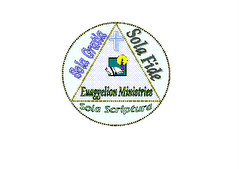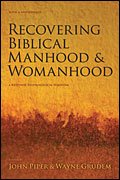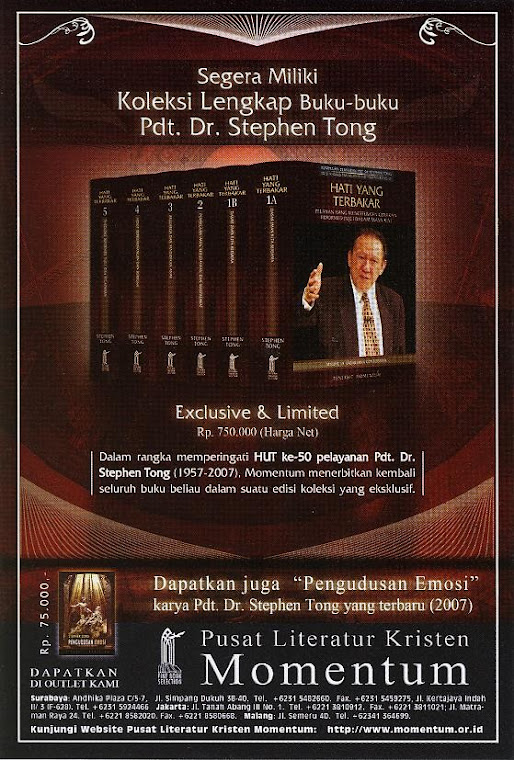Find the answer in the book:
ISSUES FACING CHRISTIANS TODAY
(4th edition)
by: Rev. John R. W. Stott, D.D., C.B.E.
fully revised and updated by: Prof. Roy McCloughry
with a new chapter (New Biotechnology) by: Prof. John Wyatt
In first 3 chapters in his book, Issues Facing Christians Today, Rev. Dr. John R. W. Stott explains about Christian involvement, thinking, and witness in this world. Should Christians involve in this changing world? Is it necessary? If it’s necessary, how can Christians create presupposition facing those issues in this world? In this chapter, he explains 4 Christian perspective toward those issues: Creation, Fall, Redemption, and Consummation. After that, how can Christians be witness to influence the world?
After those first 3 chapters, Rev. Stott explains other kinds of issues: global issues (e.g. war and peace, caring for creation, poverty, and human rights), social issues (e.g. work, business, ethnic diversity, and simplicity, generosity, and contentment), personal issues (e.g. relationship between man, woman, and God, marriage, divorce, aborsion and euthanasia, new biotechnology, and same-sex relationship). In those issues, he explains each issues detail and he provides Christian perspective toward each issue. In the conclusion, Dr. Stott challenges us to be salt and light of the world by leading this changing world to the unchanging the Word of God with the heart of servant, discipline, love, etc. I recommend this good book for Christians, so that we can integrate our faith with our social life in this world.
Biography of the authors:
Rev. John Robert Walmsley Stott, CBE, D.D. who was born in London on April 27, 1921 is a British Christian leader and Anglican clergyman who is noted as a leader of the worldwide evangelical movement. He is famous as one of the principal authors of the Lausanne Covenant in 1974. He was born to Sir Arnold and Emily Stott. Sir Arnold Stott was a leading physician at Harley Street and an agnostic, while his wife was a Lutheran church-goer who attended the nearby Anglican church, All Souls, Langham Place. He was sent to boarding school at eight years old - initially prep school at Oakley Hall. In 1935, he went on to Rugby School. Stott studied modern languages at Trinity College, Cambridge where he graduated with a double first in French and Theology. At university, he was active in the Cambridge inter-collegiate Christian Union (CICCU), where the executive committee that ran it considered him too invaluable a person to be asked to commit his time by joining the executive committee. After this, he transferred to Ridley Hall Theological College (also of the University of Cambridge) so he could become ordained as an Anglican clergyman. Stott was ordained in 1945 and went on to become a curate at the Church of All Souls, Langham Place (1945-1950) then rector (1950-75). This was the church in which he had grown up, and in which he has spent almost all of his life, aside from a few years spent in Cambridge. He founded the [Langham Partnership International] (known as [John Stott Ministries] in the U.S.) in 1974 and the London Institute for Contemporary Christianity in 1982 of which he is now the honorary president. Stott was appointed a Chaplain to Elizabeth II of the United Kingdom (1959-1991) and an Extra Chaplain in 1991. He received a CBE in the new years honours list, 2006. He has written 50 books, such as Basic Christianity, The Cross of Christ, etc.
Roy McCloughry, B.Sc., M.Sc. is chairman of Third Way magazine, a vice president of the Shaftesbury Society, a member of Tear Fund’s Theological Commission, and Tutor in Ethics and Social Theology at St. John’s College, Nottingham. He received Bachelor of Science (B.Sc.) and Master of Science (M.Sc.) in Economics from Queen Mary College, University of London. He has written a number of books including Living in the Presence of the Future.
Prof. John Wyatt is Professor of Ethics and Perinatology at University College London and chairman of the Ethics Study Group of the Christian Medical Fellowship, U.K. He is lead for the Clinical Ethics network at UCLH, a member of the ethics committees of the Royal College of Physicians and the Royal College of Paediatrics and Child Health, and a board member of Biocentre. He has a clinical background as an academic neonatologist working on the mechanisms, consequences and prevention of brain injury in critically ill newborn infants. His work is now concentrated on ethical issues raised by advances in reproductive and medical technology at the beginning of life, research ethics and governance and the philosophical basis of medical practice.






No comments:
Post a Comment